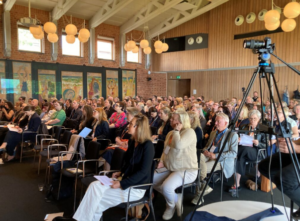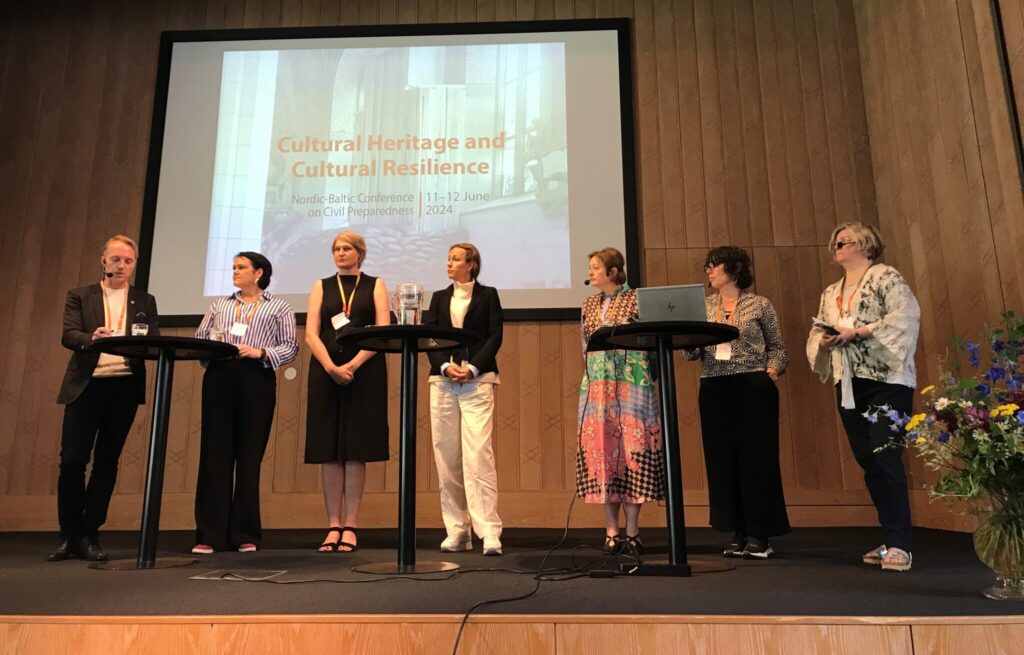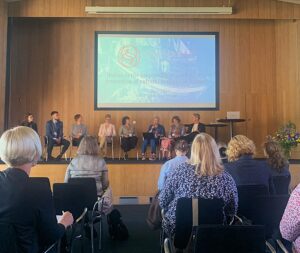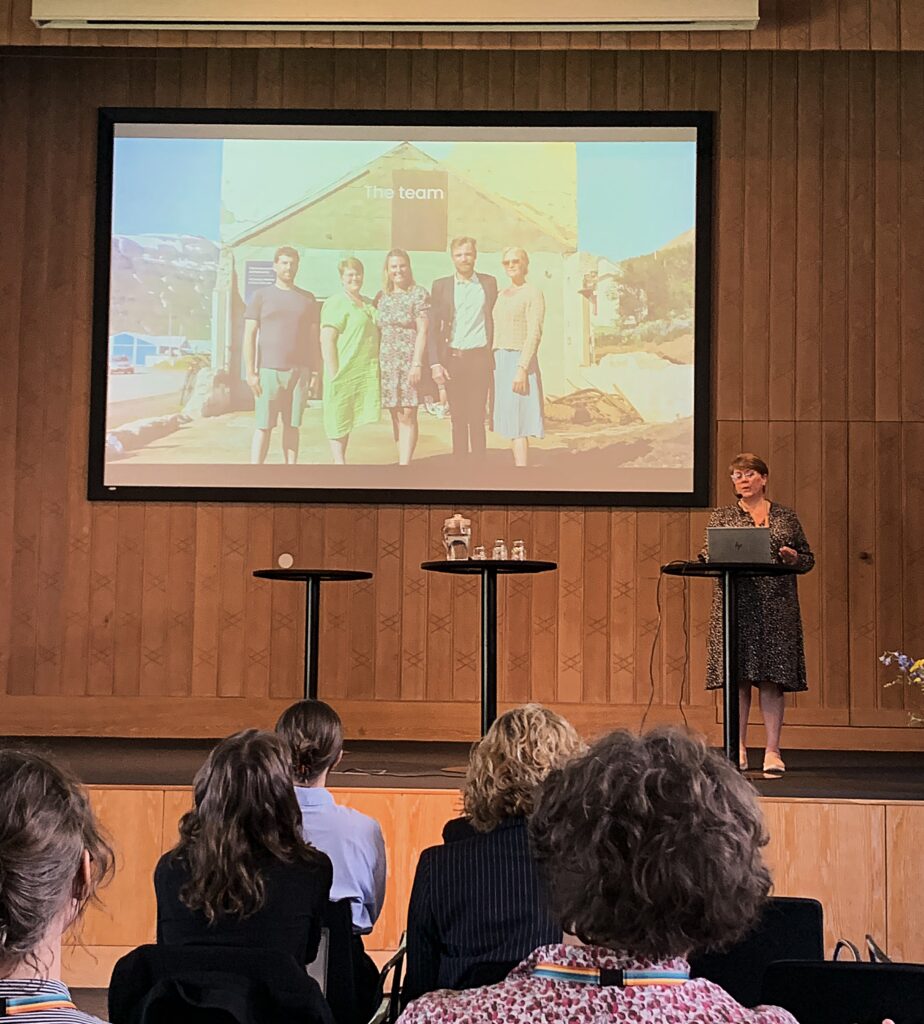
On June 11-12, the Museum Council attended a conference in Stockholm entitled Cultural Heritage and Cultural Resilience – Nordic-Baltic Conference on Civil Preparedness which could be translated as "Cultural Heritage and Cultural Resistance – Nordic-Baltic Conference on Prevention".
Here you can find a recording of the lectures and discussions from the first day.
Prevention and response plans for the protection of cultural heritage have been a focus of the Nordic and Baltic ministers of culture, who signed declaration of intent on May 3rd, where they pledged closer cooperation between the Nordic and Baltic countries to meet the increased challenges in cultural work due to increased tensions in the international arena.
UNESCO Hague Convention from 1954 for the Protection of Cultural Property in the Event of Armed Conflict, is one of the most important and comprehensive multilateral agreements relating to the protection of cultural property. Since Iceland has now ratified the said agreement (see more here) is the task of recognized museums in Iceland to work on prevention efforts and develop response plans for various types of threats, such as natural and climate hazards.

The conference was held in continuation of the declaration of intent, with the aim of increasing the focus on prevention and response planning for the protection of cultural heritage and cultural monuments, especially now that the level of preparedness has increased due to international tensions and the outbreak of war in Europe. The aim of this conference was to share the experiences that have been gained in the Nordic and Baltic countries and to increase cooperation between cultural institutions in order to better protect cultural heritage. Numerous experts and representatives of cultural affairs came together at the conference to share knowledge and experience in this field.
Prevention for the protection of cultural heritage

The conference, which lasted two days, included a packed program and a number of interesting and diverse presentations from various scholars and experts in the field of prevention, along with experiences from museums and individuals.
Susanne Thedéen, acting director of the Riksantikvarieämbetet (Swedish National Board of Antiquities), opened the conference. She discussed how the Nordic and Baltic countries are connected, not least through our shared cultural heritage.
Parisa Liljestrand, Sweden's Minister of Culture, delivered the opening speech and pointed out, among other things, the declaration of intent The declaration states that the Nordic and Baltic countries must strengthen preparedness for cultural heritage and cultural activities, and that the exchange of knowledge and national expertise between the countries is an important part of strengthening preparedness. The Minister of Culture also stressed the importance of protecting cultural heritage and maintaining cultural activities in times of crisis, now that the level of preparedness has increased.
The conference was initiated by cultural representatives from the Nordic and Baltic countries and organized by the Riksantikvarieämbetet (Swedish National Board of Cultural Heritage) together with the Swedish Council for Culture, the Norwegian National Board of Cultural Heritage and the Finnish Museums and Archives Authority. The conference was held with the support of the Nordic Council of Ministers, which Sweden holds the presidency of this year.
Program with diverse emphases

The program covered a wide range of defense and security issues related to cultural heritage. Speakers and participants came from Denmark, Estonia, the Faroe Islands, Finland, Iceland, Latvia, Lithuania, Norway, Sweden and the Åland Islands.
To name a few examples, the Danish scholar and current director of The Nordic Center for Cultural Heritage and Armed Conflict (CHAC) was The Nordic Centre for Cultural Heritage and Armed Conflict, Frederik Rosén, who discussed "Cultural heritage and security: A Nordic lead in NATO" and how governments' foreign policies address the importance of cultural values from a national security perspective in different ways.
Artist Lusine Djanyan, who is also a member of the group Pussy Riot, gave the talk "Dictatorship and Cultural Genocide" and Ruth Tiidor, Director of Preservation at the National Archives of Estonia, together with Marie Lennersand, Head of Security at the Swedish National Archives, delivered the talk. Civil Preparedness for achieves or "Archive Prevention".

Khazar Fatemi, a journalist and documentary filmmaker who powerfully described her and her family's experiences when her Kurdish family fled Iran, where the culture of her homeland played a significant role in strengthening them during their escape.
Elfa Hlín Sigrúnar Pétursdóttir, co-director of the Icelandic Museum of Technology, gave a talk about the fateful day of December 18, 2020, when a large landslide fell in Seyðisfjörður on numerous houses, including on the museum grounds. The Technical Museum. In her talk, Elfa discussed the difficult rescue efforts that followed and the work to restore the museum.
You can read more about it here. the conference and program her
